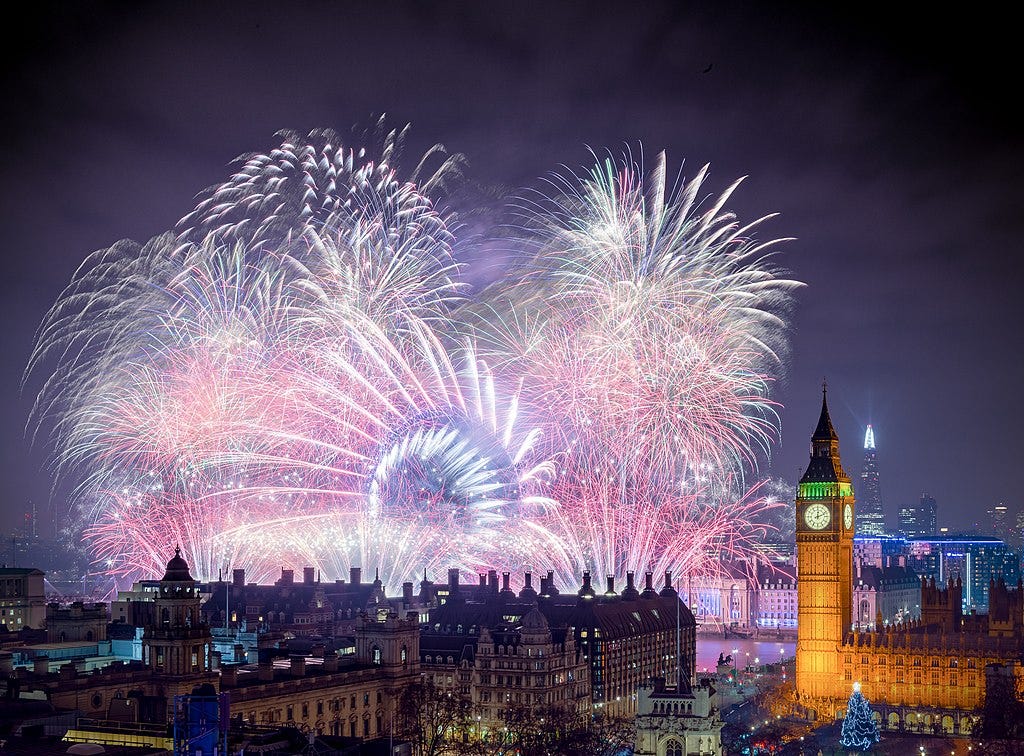I hope you've all had a good rest over the past few weeks and are finding a healthy rhythm as you settle in to the New Year.
But then again, what does that even mean? What is a healthy rhythm? What is New Year?
In the past few months I became acutely aware of how the intensity of life and business seems to accelerate toward end of the calendar year. We have crazy Black Friday sales in November, ever increasing Christmas consumerism, end of year deadlines and a self-imposed panic about all of those things that we promised we were going to do this year. We see the finish line and dig deep to find the energy to sprint toward it. By the time Christmas actually arrives and some of us are lucky enough to have a little bit of time off, we collapse over the line, frazzled.
What’s strange about this is that while our society ramps up to the grand finale at the end of the year, everything else in nature is doing the exact opposite. It is slowing down and quietening down. Furthermore, when January rolls around and we celebrate the New Year with a fanfare of exploding gunpowder, nature carries on quietly, without a fuss. It seems that we are completely out of sync with the cycles of nature.

And indeed we are. Have you ever wondered why September is the ninth month when Sept means seven? Or why October, November and December are named after the numbers eight, nine and ten respectively? It’s because January and February are what were previously ‘non-months’ in the early Roman calendar, representing the period of stillness before the New Year begins again in the first month of the year… March. The natural new year is not the first of January, but the spring equinox, when the sun finally overpowers the darkness and the days become longer than the nights, bringing energy for nature to spring into life. This is still the case with the Hindu new year, called Ugadi, which means the beginning of a new age and this year falls on March 22nd.
Now you’d be forgiven for wondering what on Earth this has to do with sustainable business, but stick with me. If the aim of sustainable business is to create businesses that work in harmony with nature and support the wellbeing of us human beings, then an understanding of the basic cycles of nature is surely foundational. There is after all a reason why astronomy and study of the natural cycles is rooted deeply in all ancient cultures and formed the origin of scientific understanding. Yet here we are in the modern world at the dawn of quantum computing and we don’t even know what time of year it is. If we have completely lost sight of the basics, what chance do we have of solving the more complex problems?
We run our businesses on arbitrary accounting cycles, set quarterly and annual targets with no regard for the varying pace and rhythm of nature, and we artificially stimulate activity during the periods when everything naturally slows down. January sale anyone? The modern world of business brute forces constant production output, regardless of what nature needs or provides.
I do not have a solution to offer here. We all live and work within an inflationary economy that demands constant economic output. We have to pay staff salaries and rent on business premises equally every month, no matter what the season. And in many cases, company directors are accountable for hitting targets that are completely detached from any natural cycles. The societal forces are stronger than the natural forces acting upon us.
But what are societal forces? They are just our collective beliefs and actions. So perhaps we simply need to start by paying attention to the natural cycles more closely, talking about them openly, recognising them as astronomical science rather than woo-woo nonsense, and where possible, beginning to shift our own behaviours in tune with them wherever we find opportunities, however small.
On that note, Vineeta has informed me that tonight is the Wolf Moon and that we should join the wild swimmers down at the beach this afternoon to enjoy the high tide. I better brace myself!



I generally enjoy all your columns, Tom - but this one especially hit a resonant chord with me. Thanks for writing and sharing.
I think there's no single "Hindu New Year" and Ugadi is just the beginning of the new year for one part of India.